Ready to choose a customer relationship management (CRM) platform that will help your business better manage customer relationships, streamline internal processes, and ultimately drive sales?
Two CRM leaders you’ll quickly come across are Oracle and Salesforce. They offer similar functionality, so how do you decide which platform is the better fit for your organization? Read on to discover the differences between them, which could make your decision easier.
Oracle vs Salesforce: A quick overview
First, let’s get a high-level overview of what each platform does.
What is Oracle?
Oracle is a robust, enterprise-level CRM solution that offers a comprehensive application suite, including sales automation, marketing automation, and customer service.
Its enterprise resource planning (ERP) features, which integrate seamlessly with the CRM to provide a unified business management solution, are what set Oracle apart from the rest of the pack.
Given its comprehensiveness, large organizations that require a solution that will scale as they grow and a wide range of complex features (including CRM) often favor Oracle.
What is Salesforce?
Salesforce is a cloud-based CRM platform specializing in customer engagement and relationship management.
It offers a modular approach, allowing businesses to pick and choose from various functionalities such as sales, customer service, marketing, and analytics. This flexibility makes it easier for companies to tailor the platform to their specific needs.
Both small and midsize businesses and enterprises alike use Salesforce. The platform is designed to be agile and adaptable, catering to companies that need quick implementations and modifications.
Pro Tip
Manage customer data intelligently with Jotform Salesforce Agent, an AI chatbot that automates record actions and connects Salesforce workflows across chat, web, and phone channels.
Oracle vs Salesforce: Key features
While these platforms are similar, they each offer users their own set of key features.
Oracle
- Customer data management: The platform centralizes all customer data for a unified view across the organization.
- Sales forecasting: Use advanced algorithms for accurate sales predictions.
- Advanced analytics: Leverage sophisticated analytics tools for in-depth data analysis.
- Multichannel customer interaction: Engage with customers across various platforms, such as email, chat, and social media.
Salesforce
- Lead and contact management: Easily manage and track customer information and interactions.
- Opportunity management: Monitor sales opportunities and manage your sales funnel effectively.
- Email integration: Seamlessly integrate your data with various email platforms for streamlined communication.
- Analytics and reporting: Use built-in analytics tools to generate insightful reports and make data-driven decisions.
Oracle vs Salesforce: Pros and cons
Here’s a breakdown of each platform’s main advantages and disadvantages:
Oracle
Pros
- This platform is highly scalable, making it suitable for large enterprises with complex needs.
- Its comprehensive feature set provides a single solution for various business processes.
- Strong security measures ensure data integrity and compliance.
Cons
- The platform has a steeper learning curve, requiring more time for staff training.
- Higher initial setup costs can be a barrier for smaller organizations.
Salesforce
Pros
- The user-friendly interface makes it accessible to teams and users of all levels.
- Extensive customization options allow for a tailored user experience.
- Its strong third-party app ecosystem enhances the platform’s capabilities.
Cons
- Additional features and add-ons can quickly escalate costs.
- The basic plan offers limited functionality, which may require upgrades.
Oracle vs Salesforce: Pricing
Your budget and needs will likely determine which of these platforms is right for your organization. Here’s what the pricing structure is like for each.
Oracle
Oracle’s pricing is more complex and often requires a custom quote. That said, the platform generally starts at a higher price point, reflecting its extensive range of features and capabilities.
Salesforce
When it comes to pricing, Salesforce pricing varies among its different products. It also has different pricing tiers for enterprises vs small to medium-sized businesses. Here’s sample pricing for its Sales Cloud product for small to medium-sized businesses:
- Starter Suite: Priced at $25 per user per month, this plan provides a basic CRM package suitable for smaller teams.
- Pro Suite: At $100 per user per month, this tier is ideal for bigger teams due to its extensive sales functionalities, including sales forecasting.
- Enterprise: At $165 per user per month, this plan is tailored for large enterprises and offers advanced customization options and pipeline management features.
Oracle vs. Salesforce: Integrations with Jotform
Jotform is a form-building platform that makes data collection and management easy, making it the perfect complement to your CRM initiatives. Offering over 10,000 free templates, Jotform helps you quickly build forms to capture leads, gather customer feedback, and collect event registrations.
Through Jotform’s seamless integration with Salesforce, you can automatically sync the data you collect with your forms into respective lead records. This means you can say goodbye to manual data entry and management and hello to a simple, automated lead-management process.
Similarly, Jotform’s Oracle integration lets you easily transfer form submission data to your Oracle database — no coding needed. The best part? It just takes a few minutes to set up: Simply select your form, click to generate its data as a SQL file, download it, and then upload it into Oracle.
So, in the Oracle vs Salesforce matchup, who’s the winner? The right choice ultimately depends on your organization’s size, industry, and specific needs. Regardless of which one you opt for, Jotform is here to support your business and enhance your CRM experience by simplifying data collection and management.
Photo by Anna Shvets

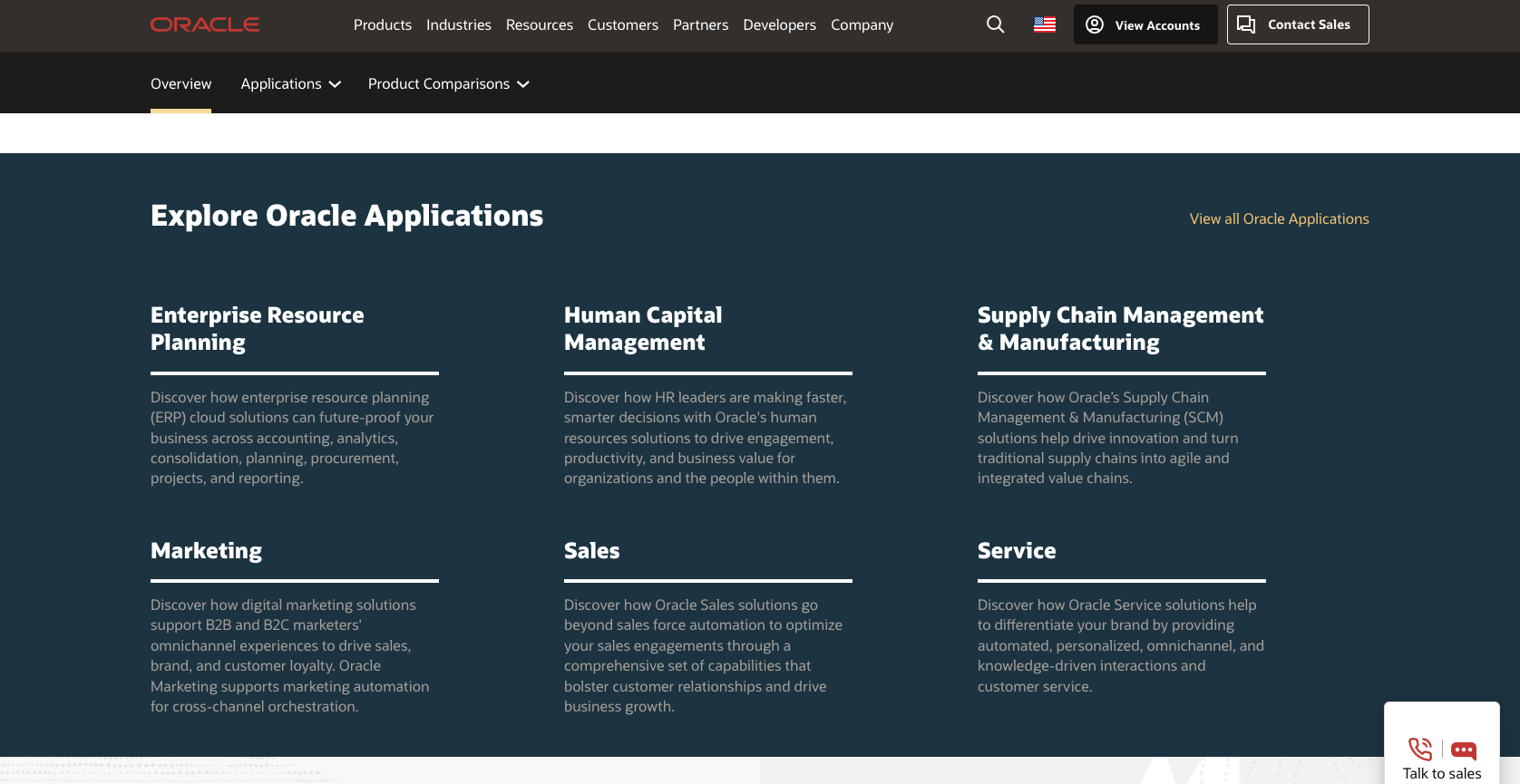
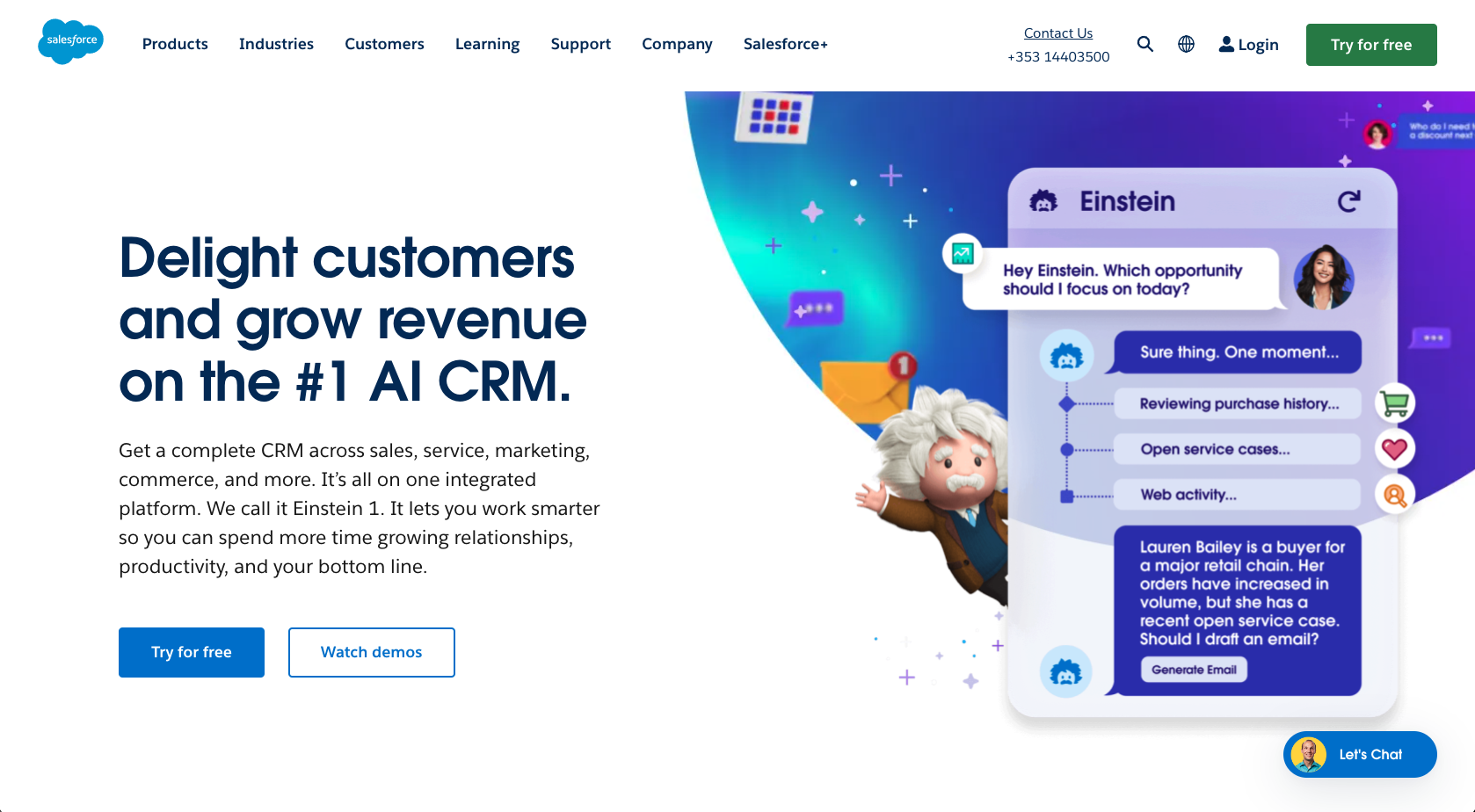




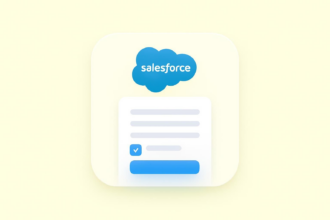


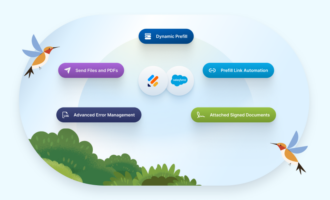
























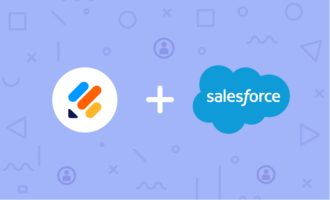










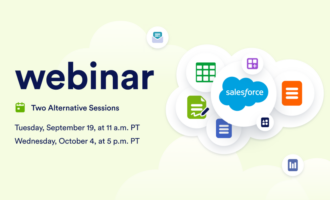














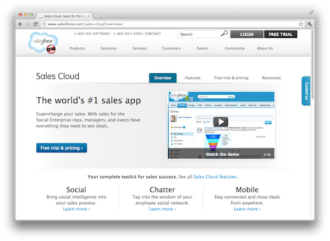













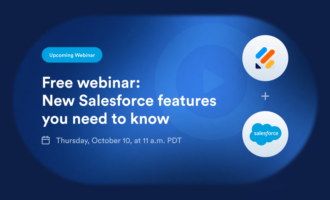





















Send Comment: